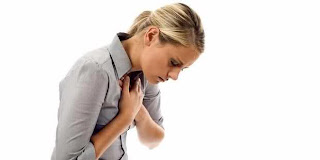Heart disease is the leading cause of death for men in the U.S, according to the CDC. The latest available American Heart Association figures reveal that in 2003, heart disease killed about 427,000 men.
Most heart attacks in men involve discomfort in the center of the chest that lasts more than a few minutes, or that goes away and comes back. It can feel like uncomfortable pressure, squeezing, fullness or pain.Symptoms can include pain or discomfort in one or both arms, the back, neck, jaw or stomach, and shortness of breath. These symptoms may include breaking out in a cold sweat, nausea or lightheadedness.
Heart disease is also the No. 1 killer of women, but women often chalk up the symptoms to less life-threatening conditions like acid reflux, the flu or normal aging.
Women tend to deal with symptoms in a different light:
They do this because they are scared and because they put their families first, there are still many women who are shocked that they could be having a heart attack.”
A heart attack strikes someone about every 34 seconds. It occurs when the blood flow that brings oxygen to the heart muscle is severely reduced or cut off completely. This happens because the arteries that supply the heart with blood can slowly become thicker and harder from a buildup of fat, cholesterol and other substances (plaque).
Many women think the signs of a heart attack are unmistakable — the image of the elephant comes to mind — but in fact they can be subtler and sometimes confusing.
You could feel so short of breath as though you ran a marathon, but you haven't made a move.
Some women experiencing a heart attack describe upper back pressure that feels like squeezing or a rope being tied around them. Dizziness, lightheadedness or actually fainting are other symptoms to look for.
Many women I see take an aspirin if they think they are having a heart attack and never call 9-1-1. But if you think you should be taking an aspirin for a heart attack, then you should also call 9-1-1 these two things go hand in hand. An aspirin is not an alternative to going to the emergency room.


No comments:
Post a Comment